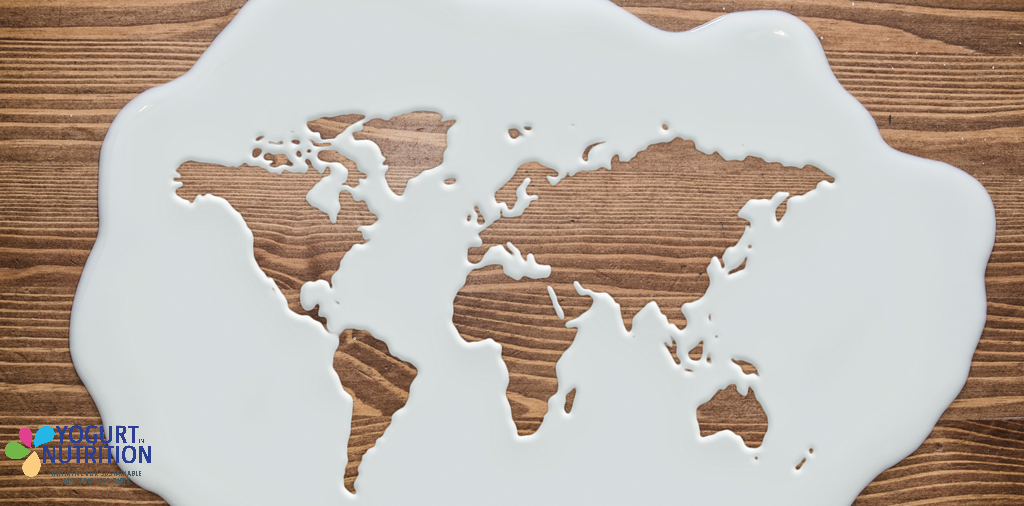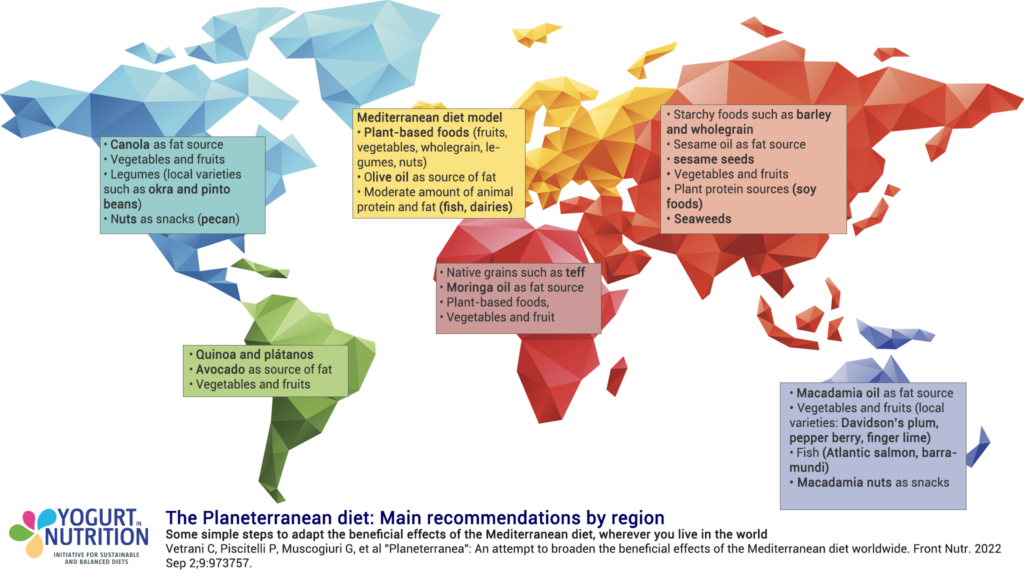Green bananas, seaweed, and pepper berries may not be everybody’s cup of tea. But to others of us these exotic-sounding foods have been an integral part of their diet all their lives. And it’s these traditional, locally-grown foods that may hold a key to a more healthy and sustainable future.
So much so that experts are encouraging people around the world to return to their dietary roots for a healthier, more sustainable future.
Why? Because scientists believe that dietary patterns based on local foods can confer similar health benefits to those of the Mediterranean Diet (MD)– the plant-based diet that includes moderate amounts of animal protein, with fish and dairy products but limited processed foods.
And this MD is likely to play a pivotal role in tackling one of the greatest global health crises facing us today – the burden of long-term diseases such as type 2 diabetes, certain cancers and cardiovascular disease. The spotlight has shone in recent years on the MD in the prevention and management of these ‘non-communicable’ diseases, which account for more than 70% of deaths globally.
But the MD is all very well for people living around the Mediterranean; not so easy for people elsewhere who have their own dietary habits, lifestyles and traditions. For them, it’s not practical to switch to a new and unfamiliar diet at the drop of a hat and it is more costly since the MD foods are not always affordable in their region. It makes more sense for individual countries or regions to advocate healthier diets based on affordable, available foods that are typically part of centuries-old traditions.
New strategy to adapt a diet model to local needs
Rising to this challenge is the UNESCO Chair on Health Education and Sustainable Development. In a continuation of its research project aiming to extend the global reach of the MD, the UNESCO group has developed a healthy and sustainable dietary model echoing the nutritional properties of the MD but implemented at a local level– the ‘Planeterranean’ diet.
To develop the model, the researchers conducted a review to collect data on dietary habits around the world, including local traditional foods and their health benefits, crop production and processing, and local recipes. Countries were grouped into five ‘macro-areas’: North America, Latin America, Africa, Asia, and Australia.
Local foods with similar nutritional benefits to the MD
For each macro-area, the researchers identified readily available, affordable local foods that allow to build a global diet which will share nutritional properties similar to those of the MD.
From this, they developed nutritional food pyramids tailored to each macro-area and offering the same health benefits – as well as environmental-friendly production processes – as for the MD.
Next steps in research may aim to sub-divide recommendations within the macro-areas to take account of local dishes in individual countries.
Further research is also needed to assess the sustainability of the pyramids, says the UNESCO group. This should compare greenhouse gas emissions of local crops with those associated with foods that have been transported long distances, and consider the affordability, and the impact on local economies that need to meet the demand from the growing population,
The Planeterranean diet: key recommendations by region
Here are some simple steps to a healthier and more sustainable diet wherever you live in the world, according to UNESCO:
Latin America
- Opt for starchy foods such as quinoa and plátanos with a low glycaemic index, rather than rice, corn, and potato (a high glycaemic index)
- Use avocado as your main daily source of fat
- Go green – eat at least 2 servings/day of vegetables
- Eat 1 or 2 servings/day of fruit – choose fruit such as açai and other berries with high antioxidant properties
North America
- Use canola as your main daily fat source
- Eat loads of vegetables – at least 2 servings/day – and at least 3 servings per week of legumes, ideally local varieties such as okra and pinto beans
- If you want a snack, go for nuts; pecans are great for this
Central Africa
- Choose native grains such as teff (at least 2 servings/day)
- Use Moringa oil as your daily fat source
- Eat plenty of plant-based foods – African fruit (1 or 2 servings/day) and vegetables (at least 2 servings/day)
Asia
- Eat more starchy foods such as barley and wholegrain with a low glycaemic index and go easy on starchy foods with a high glycaemic index such as rice and noodles (no more than 2 servings/week)
- Use sesame oil as your main daily fat source and use sesame seeds to enrich soups
- Eat more fruit (1-2 servings/day) and vegetables (at least 2 servings/day)
- Include 2 servings/week of plant protein sources, preferably soy-derived foods
- Include 1 serving/day of seaweeds especially spirulina and wakame
Australia
- Use macadamia oil as your main daily fat source
- Eat at least 2 servings/day of vegetables and of fruits, ideally local varieties including Davidson’s plum, native pepper berry and finger lime
- Eat more fish rich in omega-3 PUFA (2–3 servings/week), preferably local types such as the Atlantic salmon, barramundi
- Macadamia nuts are good for a snack (40–90g/day).
’It seems more reliable – and also desirable – that each country rediscovers its own heritage to develop a healthier nutrition pattern based on traditional and local foods.’ – Vetrani C et al, 2022
Find out more: read the original article.
Source: (1) Vetrani C, Piscitelli P, Muscogiuri G, et al “Planeterranea”: An attempt to broaden the beneficial effects of the Mediterranean diet worldwide. Front Nutr. 2022 Sep 2;9:973757.
Additionnal references:
-
GBD 2019 Diseases and Injuries Collaborators Global burden of 369 diseases and injuries in 204 countries and territories, 1990–2019: a systematic analysis for the Global Burden of Disease Study 2019. Lancet. 2020;396(10258):1204–22.
-
Martínez-González MÁ, Hershey MS, Zazpe I, Trichopoulou A. Transferability of the mediterranean diet to non-mediterranean countries. What is and what is not the mediterranean diet. Nutrients. (2018) 9:1226.
-
Colao A, Vetrani C, Muscogiuri G, et al. “Planeterranean” Diet: extending worldwide the health benefits of Mediterranean Diet based on nutritional properties of locally available foods. J Transl Med. 2022 May 17;20(1):232.




